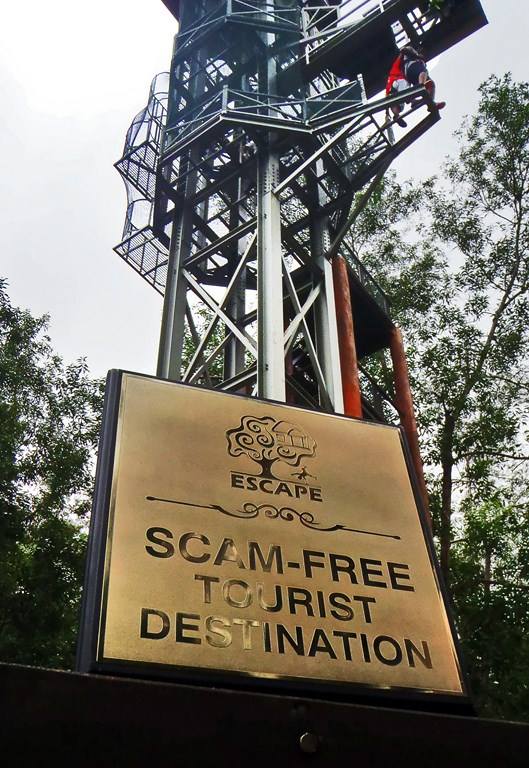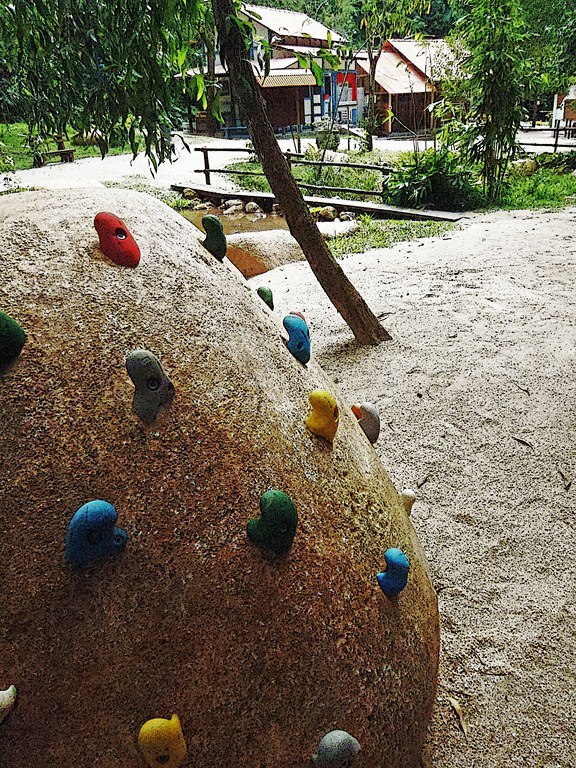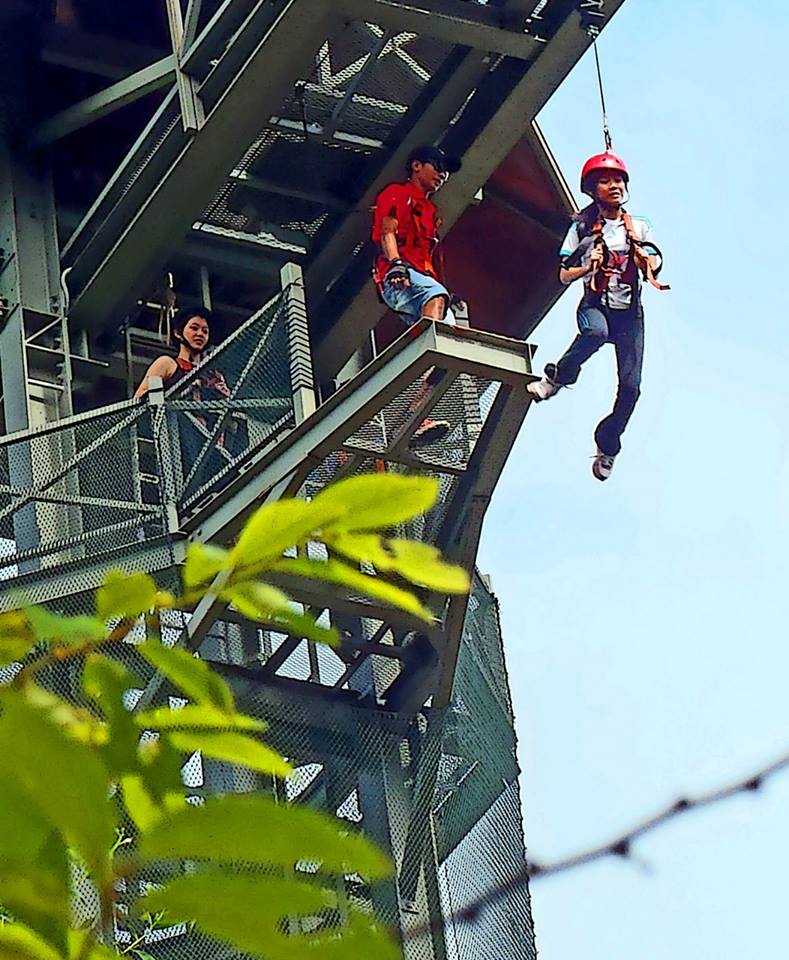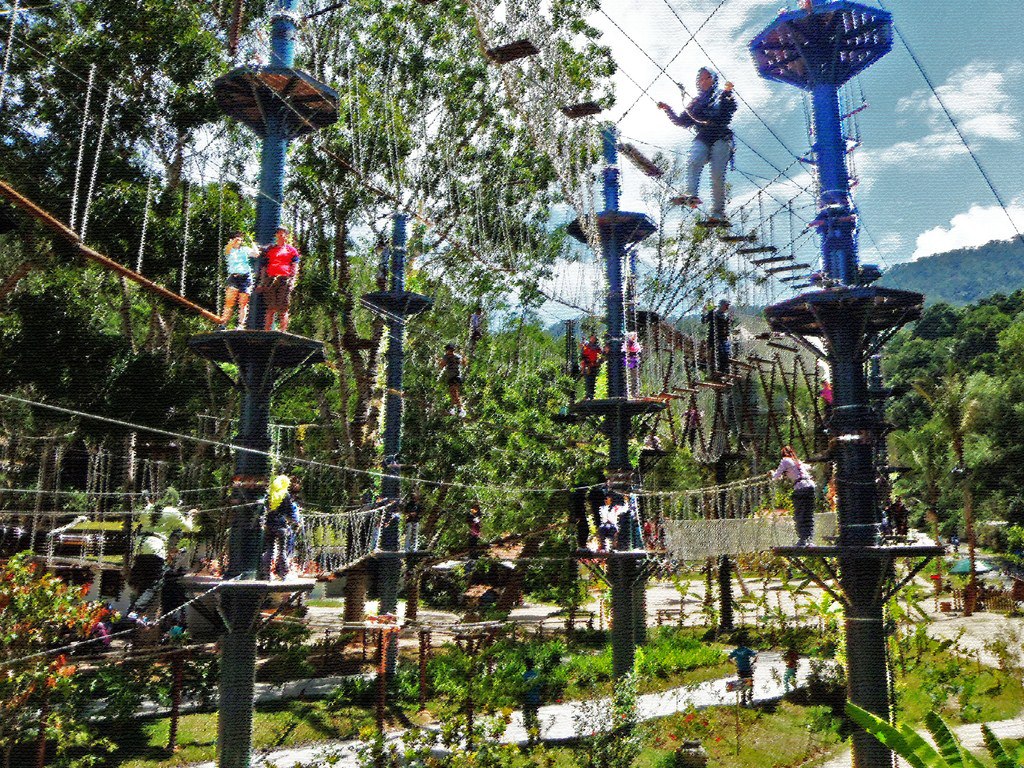
Malaysian entrepreneur Sim Choo Kheng has been an “expat” in many corners of the world. He talked to Seamus Murphy about the founding of ESCAPE, his passion for his ‘fun’ business, his vision for the theme parks of the future, and how his chronic itchy feet has made him the ‘uncommon’ Malaysian at home.
I first read about Sim last year in a UK-based leisure magazine while on holiday at home in England. A Malaysian giving his view on the future of global theme park industry. Really? No disrespect, but it seemed a bit like asking a Siberian about tropical island life! Malaysia typically isn’t seen as the hub of the theme park industry. Intrigued by this emerging phenomenon, I did my research and found that Sim is an unusual Malaysian. Like his fellow Penangite, Jimmy Choo, Sim’s work is better known internationally than in his own country: almost all his projects are outside Malaysia, and Sim Leisure’s head office is actually in Dubai. His public statements are unconventional; he’s got a reputation for being a non-conformist. But, on the other hand, he’s worked with the big names in the theme park industry. He’s completed more than fifty projects in the last twenty years, with companies like the Jumeirah Group, Lost Paradise, Ski Dubai, Yas Island, Majid Al Futtaim, Universal Studios, and Legoland – all built on the foundation of the Sim Leisure multifaceted motto “….because fun is serious business”. Of late, Sim devotes half of his time re-creating his childhood – ESCAPE in his native Penang.

Photo Credit: Escape.my, Facebook
I managed to get him on the phone when he was home in Penang. “I’ll only be interested if you intend to write something that is real and in-depth. I’m not into bragging pieces or marketing statements that read only by long-haul airline passengers,” he said a brisk but friendly tone. “I want to make people see our industry in a radically new way.” I arrived on a Saturday morning at his office at ESCAPE, in the middle of a 44-acre site across the road from Adventureplay which opened to the public in November 2012. At first I thought I had misunderstood his directions. Surely this was a command centre for a military camp complete with long-range cruise missiles and a nuclear bunker? But it was just Sim’s quirky, playful sense of humour. He has repurposed and themed an old waterworks chemical dosing plant into an army field operation centre for his ‘battle’ against conformity and average standards.
ESCAPE is definitely not like any other theme park you may have visited. There are no adult visitors, only ‘Kids’ – Future Kids (0-3), Junior Kids (4-12), Big Kids (13-60) and Super Kids (over 60). Sim jokingly said anyone behaving like an adult will be shown the exit to the park. The hyperactivity of children visiting ESCAPE come from outdoor free-play and self-directed fun, rather than from the consumption of cotton candy and sugar-coated fantasies. Trees have the right of way here and everything has been designed around them, roofs are grassed, toilets are flushed with rainwater and there’s a thought-provoking directional sign at the entrance showing the ‘cure for computer addicts’. The games at ESCAPE all mirrored how childhood used to be – but with modern safety equipment. There is a philosophy for the rides being human-powered with little reliance on mechanical assistance. As Sim explained “It’s low tech, high fun.”

Photo Credit: Escape.my, Facebook
Sim walked me to the Serambi, a classroom in a traditional village stilt house. Surrounded by children, he explained why playing outdoors is important. “Many children today simply don’t possess the life skills needed for adulthood. In Asia, many parents and teachers today hijack childhood by loading them with endless ‘tuition’ and insane homework which leaves kids no time to play, and yet study after study has shown that play is essential for human development. You need it to develop your social and communication skills, your creative thinking, your agility, fitness, and problem-solving capability. All the electronic games kids are hooked to today aren’t the true form of play. In fact, play is the natural means by which children educate themselves. Play is vital and we need to bring it back into our lives. I see the creation of ESCAPE as part of the Revolution – it’s time to play.”
“Without play, the planet is a miserable and destructive place,” he added. I thought this was an overstatement by a politician seeking re-election. “We need to reconnect the masses to nature, because unless they fall in love with nature, they won’t protect it. And the only way to bring them closer to nature is by creating intense fun in nature. On the social front, have you ever noticed how much fighting there is on this planet and compared this to how little children play together? Sim credits his creativity as a theme park consultant to his rich childhood experiences and the creation of ESCAPE Adventureplay was in part a way of reproducing this for other people. Future phases of ESCAPE will develop this theme with Waterplay and a Treetop Hotel, where you can experience the magic of sleeping out under the stars.

Photo Credit: Escape.my, Facebook
Sim reminds me that the theme parks (originally known as amusement parks) were designed as a fun treat for the masses from their hard toils. Sim’s take on the theme park industry runs contrary to the herd. He’s tired of the parks that are driven purely by technology and not creativity, parks with ever faster, scarier, bigger ‘strapped-in’ rides. “I predict within my life-time, many of these hard-core extreme rides will become passé, and will find themselves obsolete. There will be more demand for what ESCAPE offers, and theme parks will become human again. Just like health, people are beginning to realise we have been eating too much sugar-coated stuff and we will realise one day the difference between being scared and having fun.” Sim is taking the ESCAPE brand worldwide as he senses that people are becoming far more interested in these sorts of experiences. Sim Leisure has recently signed an agreement to develop ESCAPE in Abu Dhabi.
“Creating ESCAPE was a kind of destiny thing,” he says. “Many of the theme park owners in the region are not even part of the industry, many of the use theme park as a ‘marketing gimmick’ to help them sell something else. This often explains the reason many of these places look shabby and tired from lack of maintenance and re-investment after the theme parks have served its purpose. This downward spiral effect in turn has created a bad reputation for the industry.” His expression shows what he thinks of such ventures. “How can you run an industry when you’re not passionate about it?” he asked rhetorically.

Photo Credit: Escape.my, Facebook
As one of the great challenges for expats is how to use their overseas experience to the full when they return home, I asked Sim for his advice in the subject as he’s a local man with amazing international exposure. He’s lived most of his adult life overseas – working in Armenia, Bahrain, Bulgaria, Ireland, the UAE, and Vietnam. “I prefer the term ‘working abroad’ to ‘expat’, which can set you apart. Learn the language if you can, and live with the locals. In Vietnam, for example, I chose to live in an old plantation cottage and eat in the nearby village. The ‘expats’ thought I was mad not to live in a gated compound with a swimming pool but my experience was far richer because I was able to understand the way the Vietnamese are ‘wired’ so I could relate to them more effectively at work.” He credits his overseas experience with important realisations about growing beyond one’s culture. “It’s too limiting nowadays – we need a global mindset and so we must learn and play with each other and not rely on cultural traditions the way it’s always been done.”
As we walked back to the entrance to the ESCAPE park, Sim explained to me that we’ve lost the art of play as a human species – and very much to our detriment. “Pay attention to your pets, you’ll see they spend a lot of time playing. A person will not become a complete person if there is one part that is missing – a childhood full of play. You can’t jump from your fouryear- old self, full of wonder, creativity, and curiosity, into the straitjacket of academic goal-chasing. We all need play – and that’s why it’s really time to play!”
Source: The Expat Magazine September 2014
Read more:
- An Afternoon with the Venezuelan Ambassador
- An Afternoon with the Dutch Ambassador to Malaysia
- Forbes Asia’s Heroes of Philanthropy List Includes 4 Malaysians
What are your thoughts on this article? Let us know by commenting below. No registration needed.
"ExpatGo welcomes and encourages comments, input, and divergent opinions. However, we kindly request that you use suitable language in your comments, and refrain from any sort of personal attack, hate speech, or disparaging rhetoric. Comments not in line with this are subject to removal from the site. "


















